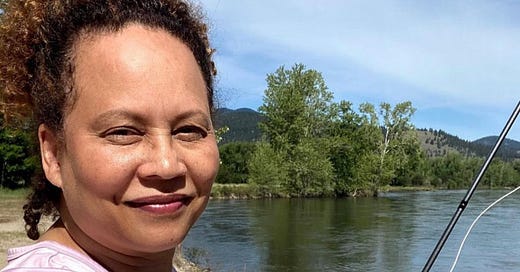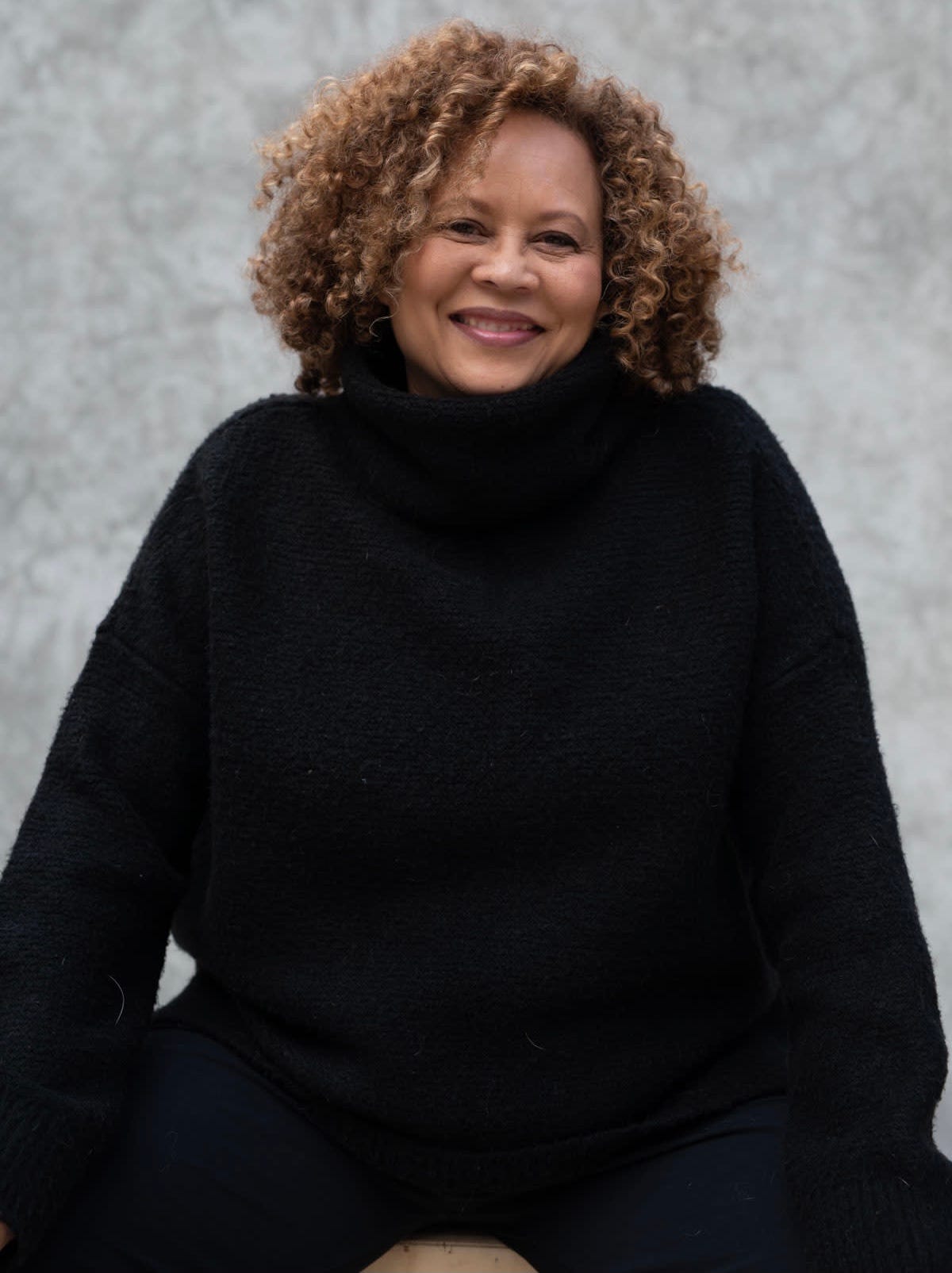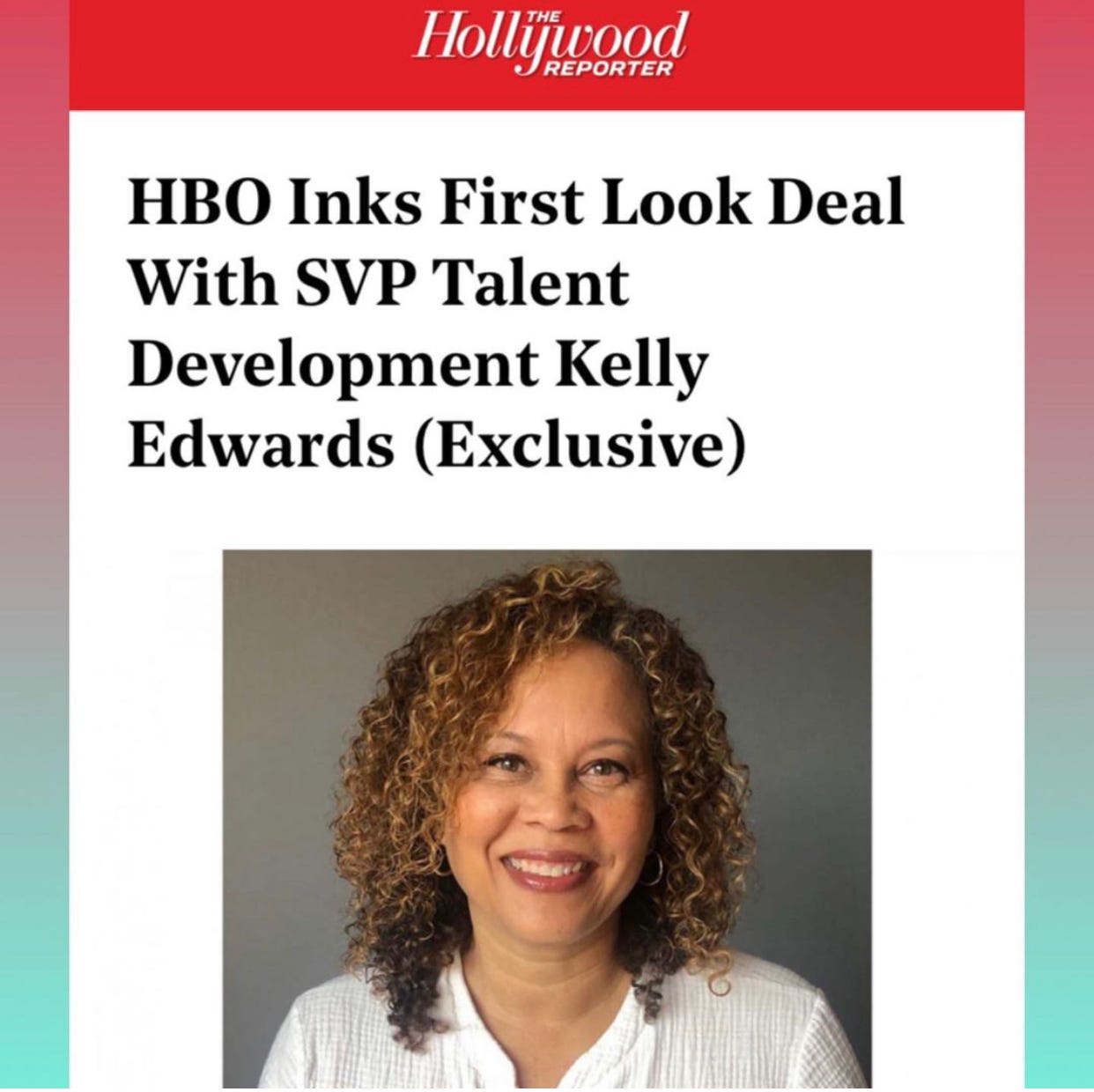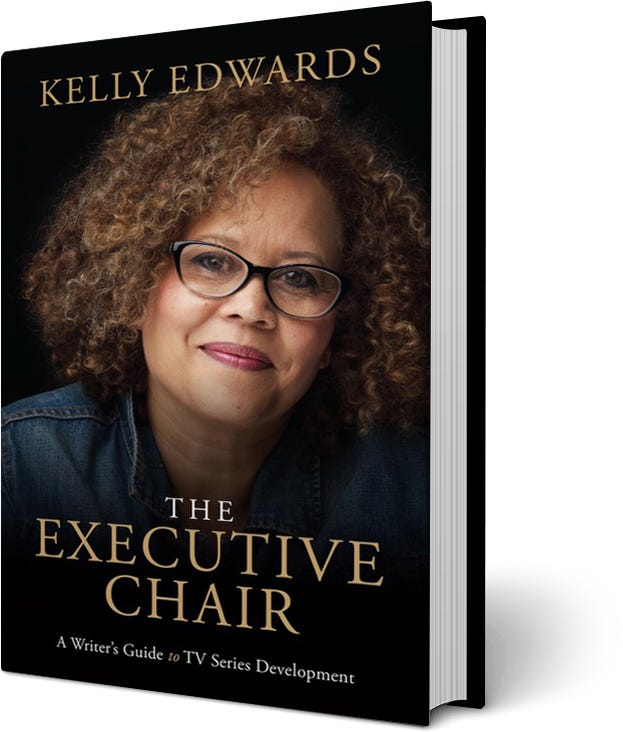INTERVIEW: Kelly Edwards, Former HBO Exec Turned Writer/Producer!
"Like most writers, my ideas come from everywhere. I dream a lot of my ideas. They come to be fully formed and all I do is transcribe them." - Kelly EdwardsHey Hey!
Hope you had a great Labor Day! Up next for our interview series is Kelly Edwards, she is a former Entertainment Executive who throughout her career helped to develop the following televsion shows: Living Single, Clueless, The Wild Thornberrys, Girlfriends, The Parkers, and Malcolm in the Middle. Her bio is below:
Veteran producer and creative executive Kelly Edwards has worked with every major studio in Hollywood. Mentored by legendary director Garry Marshall at Disney and famed producer Laura Ziskin at Sony, Edwards eventually shifted her focus to television, where she served as a comedy executive at Fox and headed up UPN’s Comedy division.
After producing a drama series for Paramount, she moved on to NBCUniversal, where she oversaw diversity for their twenty networks. Edwards spent her final stint as an exec creating HBO and Warner Media Entertainment's emerging artists programs. Along the way, she also produced a Christmas movie for Hallmark.
Edwards holds a B.A. in Theater from Vassar and an MFA in Screenwriting from Emerson College. She has been a Sundance Episodic Lab fellow and was recently staffed on the new Fox drama Our Kind Of People. Her new book The Executive Chair: A Writer’s Guide To TV Series Development, will be released October 5th, 2021
Edwards is going through a major transition in her career where she will now be primarily focused on writing and producing. We were ecstatic to be able to learn from her and hope that you are able to glean something from her too! Enjoy!
//
1. Last year, you secured a First Look Deal with HBO where you will be more focused on writing and producing as opposed to your executive responsibilities. What has that transition been like for you?
Insanely gratifying. At first, I was nervous about going out on my own again because I had done it twice before. Once, right after leaving UPN to partner with another non-writing executive producer and then, for a short time, after leaving NBCUniversal. It can feel like falling off the edge of the earth. Suddenly your calls do not get returned as fast as they used to when you were working for a big company. But, there was no reason to worry. About a week after I left HBO and started this first-look deal, I had an offer to write a book.
On the other hand, I have had to reintroduce myself to the entertainment community. They know me as an executive, not as a writer. That is where Sundance helped quite a bit. The press release about me being in the cohort was a very public declaration that I was switching my focus to writing. It also reaffirmed for me that I was doing the right thing. It is scary to switch gears so late. Particularly when I have been known for developing new artists. I was really concerned that making this move would be perceived as a conflict of interest. And here I am teaching people how to write and giving them the tools to make their dreams come true. What if I do not make it? Ultimately, I realized that all along I had been telling emerging artists that it is okay for them to go for what they want, but I was not taking my own advice. I needed to get out of my own way and just do it.
When I received my MFA, it was another step in that direction. Being able to message that I had been accepted to Emerson sent another signal to the community that I was pivoting. I am still communicating to everyone who I am as a writer. It is not like you wake up one day and suddenly everyone thinks of you as something new when they have known you as something else your entire career. But then I think, if they could get over the fact that I changed my name when I got married, they can eventually roll with this too. This is what they call a champagne problem.
2. You have been working in the film and television industry since the 90's. What is the biggest difference and/or change between development now and what it used to be just a few decades ago? (ex: are audiences seeking something different? Do shows get developed faster? etc.)
This is a gargantuan question because so much has changed (by the way, I am going to start using that word more because I just do not think it gets enough play. No one says gargantuan... and they should.) We have gone from a multi-camera comedy model to an almost exclusively single-cam world. We have gone from comedy having only two acts, plus a teaser and a tag, to a three-act comedy structure in broadcast and no acts at all in streaming and premium cable. Scenes are faster and shorter. Shows are less driven by stand-up comics and more concept-driven. In drama, we now have six acts versus four. Networks are also asking different questions like, what is the character's wound, or how is this show propulsive? Instead of, how is this character quirky?
People also seem somewhat confused about how to pivot to a streaming model which requires more serialized storytelling to get you to keep pushing "next episode". Yet the shows they reference were all made from a stand-alone episodic model where you can essentially watch any episode out of order because it is not serialized. So, we are still adjusting to this new way of creating series.
I think we will continue to see this evolution unfold for a few more years until we have accepted a new language we all understand and agree on. We are still dealing with this raw mash-up between what we have always known and this new tech company infiltration that sees content differently and must have more worldwide appeal. We will get there, but there will be growing pains along the way.
3. When it comes to screenwriting, where do you get your ideas from? What is your creative process like? And what kind of projects are you looking to produce?
Like most writers, my ideas come from everywhere. I dream a lot of my ideas. They come to be fully formed and all I do is transcribe them. That is a drastic oversimplification, but it is true. I try to meditate to clear my mind, I go for walks, I take baths, I go to the beach, research, and explore public domain titles. I watch everything I can and read as many novels as time allows. Like most writers, I study what others have done, which always sparks something new in me that I would like to explore.
As for what projects I would like to produce, I am very clear on this. In my book, I tell the story about how I had to write myself a mission statement in order to stay on track and not get distracted by what other people might want me to do. My managers told me, you can be whoever you want to be. I had a clean slate with the industry. I could craft a new image for myself. When I really sat down and thought about who I wanted to be I looked at all of the things that get me excited and it came down to hope, joy and wonder. You will never see me do a Black torture project. It is just not in my DNA. It is unlikely you will see me do something about serial killers. And even though I am a hopeless cynic about relationships and I hardly ever go to the gym, I love writing romantic comedies and action with stunts and a fire-walk. A lot of this is simply about tone.
4. Your Instagram reveals that you recently moved to Montana. Clean air, open space, fresh eggs - must be nice! How has this helped and/or hindered your writing? Also, since COVID has changed so much of what is happening in the industry, do you think it is possible to have a career in the entertainment industry outside of the major cities (LA, NYC)?
I am so glad you asked this question. I talk about all of this in my book. Yes, I moved to Montana. My family has been here for thirty years and when my kids were little they came up for camp every summer. It is a great getaway. It is easy to forget the problems of a big city when you are up here. You immediately get what I call "city amnesia." All of a sudden you just want to grab a beer and sit on a front porch.
It has helped my writing tremendously because there are no distractions. Things move at a much slower pace. I have been ice fishing, fly fishing, river rafting, and hiking. We even cut down our own Christmas tree. I never would have done that in Los Angeles or New York City. I have been working on a paranormal thriller and needed to do some research. Two calls and three days later, I was having coffee with the Missoula Sheriff. That kind of unfettered access would have taken months to arrange in Los Angeles.
The one and only benefit to a worldwide lockdown is that everyone finally acknowledged that not only is talent everywhere, but that remote work has value. Whether things will stay this way over the long haul has yet to be seen, but there is an opening now that we did not have before. On the television side of things, when and if rooms go back to being in-person you will still have to be in Los Angeles. There is a personal aspect to physically being in a room together, throwing out ideas, brainstorming, and forming relationships that you can not do on Zoom. For film, it is different because writing a screenplay is a solo act. But even then, you must be in town in order to network and be a part of the "club." People work with people they know and who have been vouched for by other people they know. Those relationships develop organically at lunches, screenings, mixers, and events. Not necessarily over a screen.
5. Your book, The Executive Chair: A Writer's Guide to TV Development, is coming out in October. Why did you write this book?
My step-father was a dentist. My mom was the dean of a college. I was not exactly sailing into the biz on the coattails of an industry family. We did not sit around the dinner table talking about cinematographers. My parents talked about malocclusions and gum disease. Like most people of color, I had to fight my way in and had to keep fighting to get a fraction of the opportunities other people were handed openly. I wrote this book to make getting in easier for anyone who wants a career in this business, but who does not necessarily know how to go about doing it. The industry only survives if we are bringing new ideas to it. For too long, it has felt like a closed club. My goal was to give people tips on how to navigate some of the tricky parts of the industry to make their entry easier. There are certain protocols that I had to learn and insights I gained by being on multiple sides of the business -- as a creative executive for both television and film, a producer, a corporate diversity executive who sat close to HR, and as a writer -- that not everyone is privy to. Why not share that intel so that it is not so hard for the next person coming up behind me?
For the past twenty years, I have been the President of a non-profit I co-founded for creative executives of color. Our goal was to connect and support each other to make this business easier to navigate. We experience the world differently than our white counterparts. Things land on us differently. And there is a smaller margin for error. We walk a very thin line all of the time. We need someone to give us the insider info so we make fewer of those unforced errors. That is why I wrote this. To make things easier. To fling the doors open a little wider for everyone because when everyone is welcome and heard we find so many more stories to entertain us.
//
Are you new to Sisterhood Cinema? We are a hub for women who work in film and television. Showcasing film/tv opportunities, events, etc. If you haven’t already, be sure to sign up for our newsletter, like us on FB, follow us on Twitter and Instagram.







